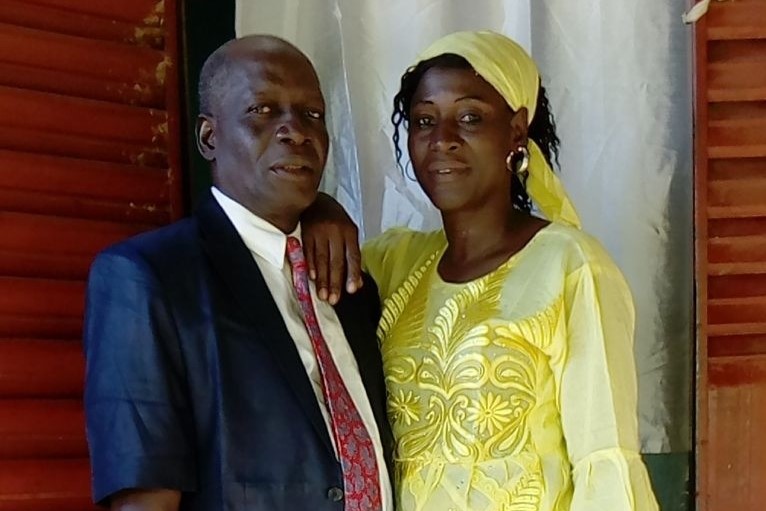Pastor Pascal Adams Thera found APF online. After introducing himself and his work amongst the Malinké people of south-western Mali, we soon got him up and running on eVitabu, our church leader resource-hub app. Since then, we’ve enjoyed finding out more about Pascal and his community development work in this challenging part of Africa.

I was born into a practicing Christian family. I am married to Marceline Sanou who is a nurse and we have four children and five grandsons. I accepted Jesus Christ in 1975 and the call to ministry came shortly after. I did not enter a full-time pastoral ministry immediately, however. I first trained as a business manager and administrator and worked as a management consultant and development officer. My call was to be a lay preacher, or tentmaker as we say.
In those days, I belonged to the Evangelical Christian Church of Mali. As Development Officer, I worked on many agricultural projects. This is so important as Mali is very food insecure and every year the desert grows larger.
In 2017, I came to Manantali. Manantali is a small but busy market town near the dam of the Bafing River. You find the town in the Bafoulabé Cercle in the Kayes Region of south-western Mali.
I first came to Manantali wanting to establish an entrepreneurship project for young people through agriculture. The vision that the Lord gave me was for an agricultural project supported by a strong local church. The Manantali area is inhabited by four unreached ethnic groups: the Malinké, Soninké, Peulhs and Moors. Church leaders in the area have no training and they struggle especially with evangelism.
When I first arrived, I taught the church leaders using Paul’s ‘Call of the Macedonian’ in Acts 16. After I gave this message, the church leaders that were preaching in the desert asked me to answer this call myself and stay in Manantali. I agreed.
I began to formalise the framework of this work and soon Mission Evangélique Chrétienne Agape (MECA) was born. MECA is an indigenous Malian mission and stands for evangelism, church planting and discipleship. Our headquarters are in Manantali where we also have a local church which I am pastoring. We have planted another church in Niantasso, 45 kilometres away with a trainee pastor.
Our goal is that we should not depend on the outside world for the financial life of our organisation. My background in community development has convinced me of the importance of sustainable agriculture so we have adopted this as a strategy for supporting the ministry.
Our headquarters has an area that we want to fence and irrigate for agriculture. At the same time, we are starting a sustainable agriculture training project for the local youth. In all the villages we are going to, we plan to acquire some land (either by grant or by buying it) and replicate this same approach.
What are my hopes for the future? To answer that, let me tell you about our vision. It is to establish at least one active local church, strong both spiritually and numerically, in every administrative village in the Bafoulabé Cercle and beyond. The Bafoulabé Cercle has 13 communities and has about 212 villages including Manantali.
We want to see the Malinké people reached for Jesus with a strong and living church among them. The Malinké are included in Revelation 7:9 so we have to work to make it happen.
We long to see communities able to support themselves and free from poverty. We long to see our own training institute where we will train our pastors and leaders in Christian theology, pastoral leadership and sustainable agriculture.
It is a big vision but we have a big God.

